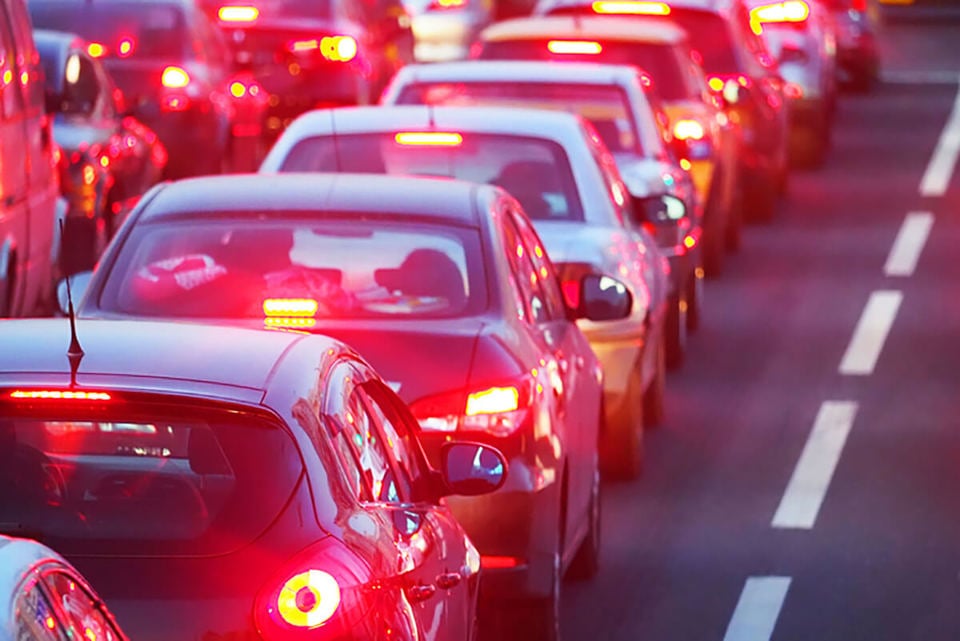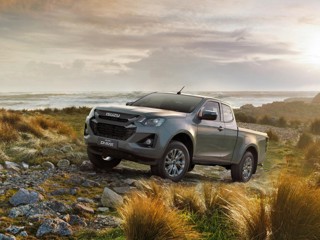Fleet News has examined the manifestos of all the major political parties ahead of the General Election to find what are the transport policies that could impact fleets.
However, policy detail has been somewhat lacking from the parties, particularly around transport and the future of fuel duty.
A brief summary of what the parties have announced on the campaign trial are listed below, with links through to more detailed analysis.
Conservatives
The Conservative party has vowed to “back drivers” by stopping road pricing and reversing the expansion of London’s ultra-low emission zone (ULEZ).
The party’s manifesto says it has prioritised freezes in fuel duty and will introduce reforms to allow motorcycles in all bus lanes and will also review motorcycle licensing.
A Conservative Government would no longer build any new smart motorways and will instead invest in improving the safety of existing ones.
A National Parking Platform would be launched this year to simplify paying for parking. Councils would also be given the power to ban pavement parking.
The Conservatives say the party has paved the way for automated vehicles to be on British roads in the next Parliament. It also said it would ensure the UK’s charging infrastructure is “truly nationwide”, including rapid charging and delivering on the Zero Emission Vehicle (ZEV) Mandate.
On infrastructure, it says it will invest £36 billion in local roads, rail and buses to drive regional growth, including the previously announced £8.3bn to fill potholes and resurface roads, funded by cancelling the second phase of HS2.
Labour
Labour has vowed to reintroduce the ban on the sale of new internal combustion engine (ICE) cars from 2030, but makes no mention of whether that will also apply to vans.
Its manifesto says rebuilding Britain means modernising the country’s transport infrastructure.
It has pledged to fix an additional one million potholes across England in each year of the next Parliament, funded by deferring the A27 bypass, which it says is poor value for money.
Labour says it will further support drivers by tackling the soaring cost of car insurance, but does not explain how.
It will also support the transition to electric vehicles (EVs) by accelerating the roll out of charge points and supporting buyers of second-hand electric cars by standardising the information supplied on the condition of batteries.
Mayors will be given “the power to create unified and integrated transport systems, allowing for more seamless journeys and to promote active travel networks”.
Liberal Democrats
The Liberal Democrats have also vowed to reinstate the plug-in car grant and ban the sale of new ICE cars and vans from 2030.
The party has pledged to make it “cheaper and easier” for drivers to switch to EVs by rolling out more charging points, including residential on-street points and ultra-fast chargers at service stations.
In addition, it says it will support new chargers with an upgraded National Grid and a step-change in local grid capacity, cut VAT on public charging to 5% and require all charge points to be accessible with a bank card. The Government has already legislated to make all DC chargers take contactless payment.
Other transport policies from the Lib Dems, include protecting motorists from “unfair” insurance and petrol prices – it doesn’t say how it would do this – freezing rail fares and simplifying ticketing on public transport to ensure regular users are paying “fair and affordable” prices.
Furthermore, it says that it wants to give more of the roads’ budget to local councils to maintain existing roads, pavements and cycleways, including repairing potholes and taking steps to reduce demand for flying.
It says it would do the latter by reforming the taxation of international flights to focus on those who fly the most, while reducing costs for ordinary households who take one or two international return flights per year.
It would also introduce a new super tax on private jet flights, and remove VAT exemptions for private, first-class and business-class flights, as well as banning short domestic flights where a direct rail option taking less than 2.5 hours is available for the same journey, unless planes are alternative-fuelled.
The party says it is committed to cutting greenhouse gas emissions to net zero by 2045 at the latest.
Reform
Reform has pledged to scrap the move to EVs by reversing the ban on new petrol and diesel vehicles. There would be no legal requirement for car manufacturers to sell EVs either, so the ZEV mandate would be abolished.
Low traffic neighbourhoods, 20mph limits and clean air zones (CAZ), including the ULEZ would all go under a Reform government. Speed limits will be kept low “where safety is critical”.
Any further work on HS2 would be scrapped, which the party described as a “bloated vanity project”.
Reform says there would be a particular focus to accelerate transport infrastructure for the UK’s coastal regions, with Wales, the North and the Midlands all highlighted in particular.
It said it would improve existing rail and road links, but gave no further detail on its manifesto on how it would do this.
Green Party
The Green Party’s manifesto has a big focus on cycling, public transport and tackling climate change with reforms to air travel.
Active Travel England’s objective for 50% of all trips in England’s towns and cities to be walked, wheeled or cycled by 2030 would be adopted.
Public subsidies would be boosted by £10bn to help transform rail and bus travel before the end of the next Parliament. Free bus travel would be introduced for under-18s.
It said an additional £19bn would be earmarked to improve public transport, support electrification and create new cycleways and footpaths.
The railways would be brought back into public ownership under a Green government and local authorities would be given more control over funding to improve bus services.
The Greens would raise funds for transport improvements by introducing a frequent-flyer levy, a ban on domestic flights for journeys that would take less than three hours by train and it would also halt any expansion to the UK’s new airport capacity.
SNP
The SNP says it will “strengthen incentives to purchase cleaner vehicles” and will establish a low income EV car leasing fund.
The leasing fund would be backed by funding of at least £500m to enable 50,000 EV leases a year for low income households.
The SNP will call on the UK government to transfer full powers for the complete integration of track and train to Scotland to fully devolve the railways, including full ownership and powers over Network Rail Scotland.
The SNP’s manifesto says it will ban the import and sale of new, non zero-emission buses by 2025. It says the UK government must also fully support the production and use of sustainable bridging fuels in the maritime and aviation sectors.
It said that while reducing road traffic is key to cutting emissions, this is not always possible in a “rural and sparsely populated country”.
The SNP is committed to dualling the A9 in full between Perth and Inverness and improving the A96, including dualling Inverness to Nairn and the Nairn Bypass. It will also press the UK government to “fulfil their commitment to fund improvements to the A75”.
Plaid Cymru
Plaid Cymru wants to revolutionise Wales’ rail and transport infrastructure with the £4bn it says it is owed from HS2, which it describes as “an England only project”.
It wants rail infrastructure to be devolved to Wales and would work on “properly connecting north and south Wales for the first time”.
Major rail lines would be reopened, the North Wales Main Line would be electrified and existing rail services would be improved, with a particular focus on west of Swansea.
Plaid Cymru also favours renationalisation of major bus services and would seek to integrate bus and rail services “to the benefit of passengers”.
Bus services would be regulated to ensure frequency of service, reliability and quality.
Bus passes will be retained for older people and a similar scheme would be established for young people to encourage the use of public transport.
Plaid Cymru says any changes to roads policy will happen at the same time as increased investment in public transport systems.
The party supports clean air zones near major centres of population and traffic calming measures to increase road safety.
While Plaid Cymru supports the principle of the introduction of the 20mph speed zone across Wales it wants to review its “poor implementation by the Labour Welsh Government”.





















Login to comment
Comments
No comments have been made yet.